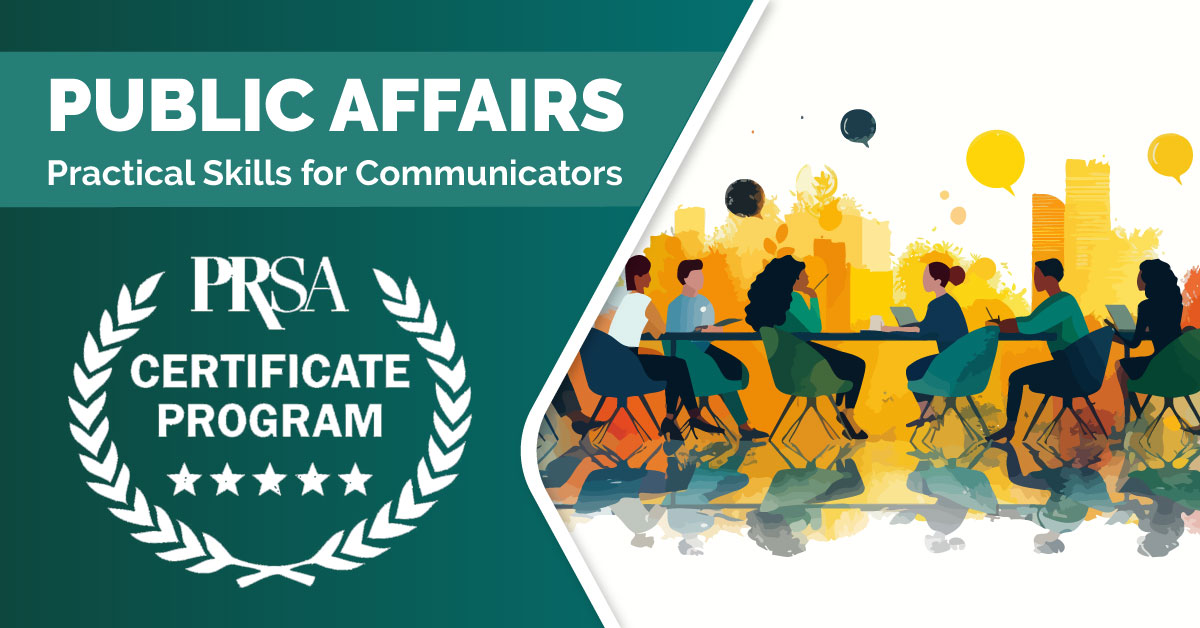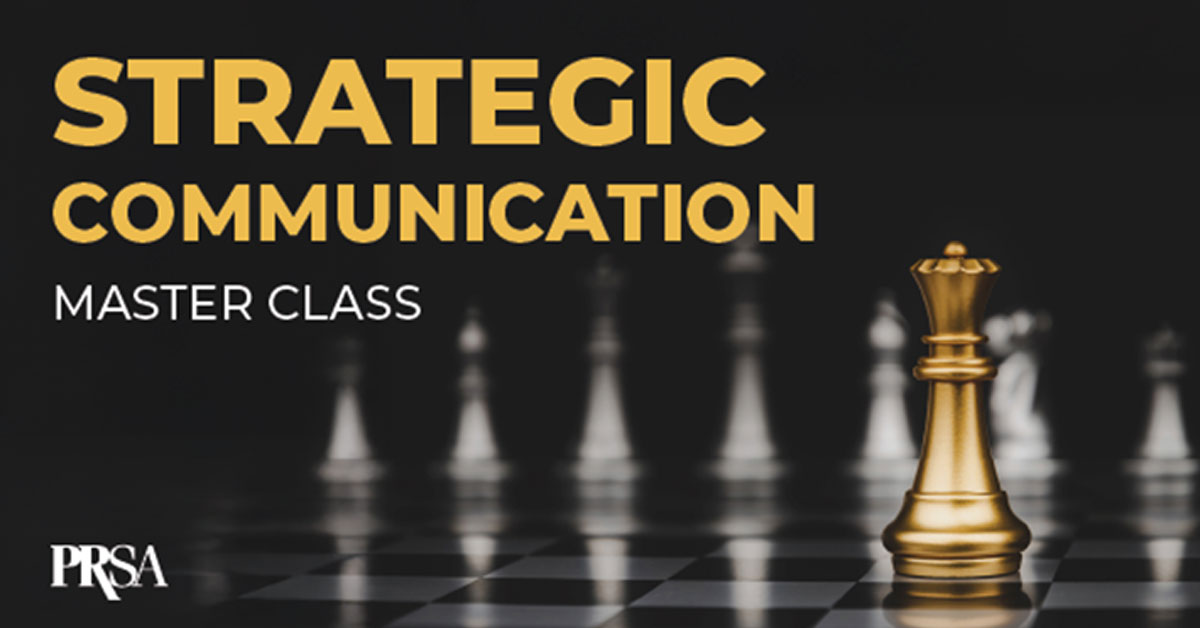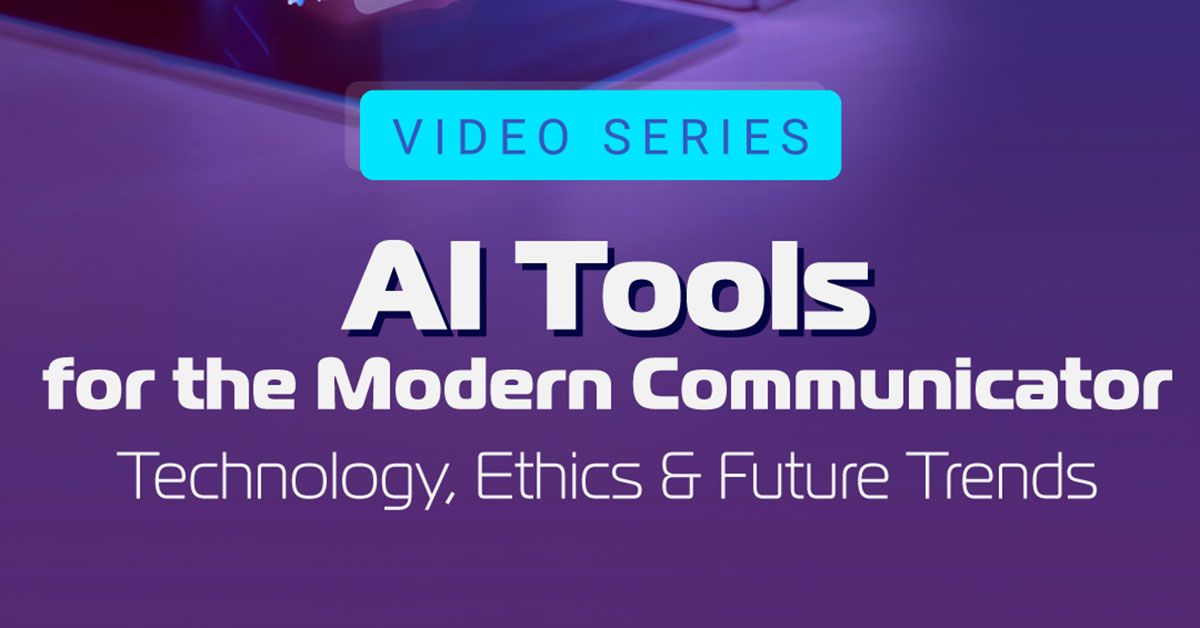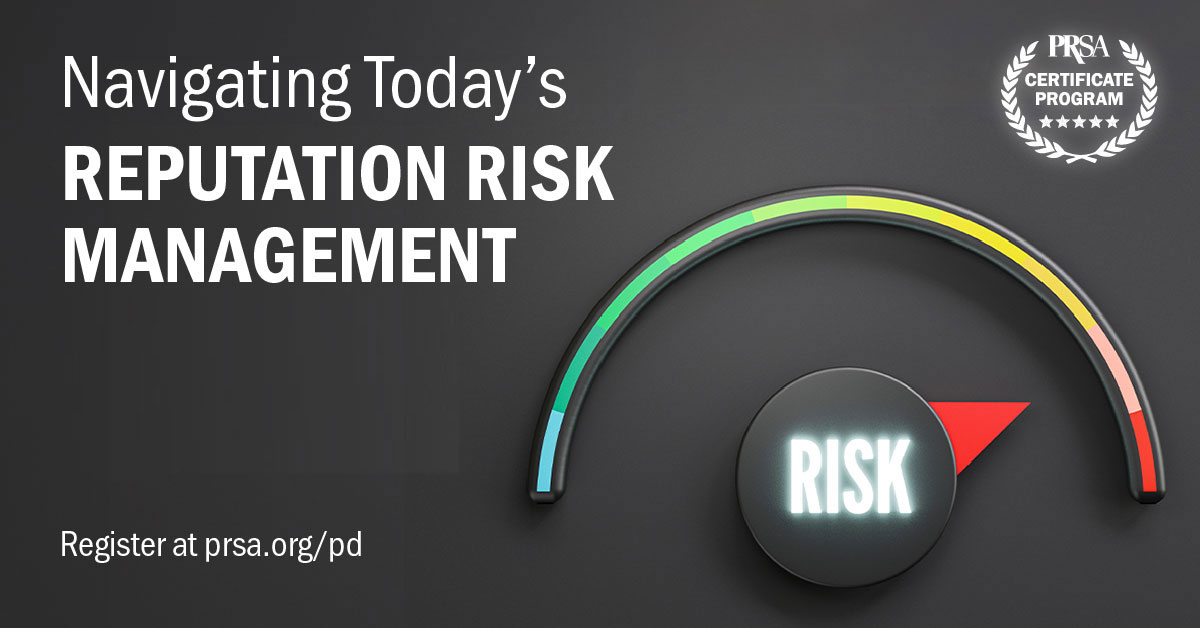Search Professional Development
PRSA is the preeminent learning organization focused on professional development for public relations and communications professionals, offering a range of events, programs, and webinars designed to provide practical insights, enhance skills, and foster industry connections throughout the year.
Use our search function to easily explore and find the opportunities that best match your career interests and needs.
Search by Keyword
Filter by Category
Filter by Type
Filter by Format/Career Level
Filter by Month
-
Course/WorkshopYes, You Canva!
Jan. 22 – 29, 2026
Join this three-part Canva workshop to learn powerful presentation secrets — all through a PR messaging lens.Categories: Emerging Trends, Techniques & Tactics -
WebinarGhostwriting, Meet AI: Build a Custom GPT That Captures Your Exec’s Voice
Jan. 27, 2026 3:00 p.m. – 4:00 p.m.
Join this webinar for a step-by-step through building a GPT that writes in your executive’s voice.Categories: Emerging Trends, Special Interests, Techniques & Tactics -
WebinarPRSA IPA Business-Building Webinar Series: Jan. 2026
Jan. 28, 2026 2:00 p.m. – 3:00 p.m.
This IPA webinar series features a variety of topics and speakers focused on “the business of the business” to help you work ON the business not just IN it.Categories: Special Interests -
WebinarBehind the Mic: The Power and Potential of Health-Related Podcasts
Jan. 29, 2026 3:00 p.m. – 4:00 p.m.
Join us for a dynamic, one-hour webinar featuring a panel of seasoned health podcasters who have built influential podcast platforms and loyal audiences in an increasingly crowded digital space.Categories: Emerging Trends, Special Interests, Techniques & Tactics -
Course/WorkshopGEO for PR: How To Get Your Brand Named in AI Answers (Without Touching Code)
Feb. 3 – 10, 2026
A hands-on, nontechnical workshop that shows PR professionals how AI systems form answers — and how to use GEO (Generative Engine Optimization) to place credible facts where models actually look.Categories: Emerging Trends, Techniques & Tactics -
WebinarInside The Big Game Panel Analysis
Feb. 3, 2026 3:00 p.m. – 4:00 p.m.
Join this webinar to see what public relations really looks like during the week of the biggest game in professional football, beyond the game itself.Categories: Emerging Trends, Special Interests -
Simplify, Amplify and Elevate: A Live Demo of ACCESS Newswire’s PR Platform
Feb. 5, 2026 2:00 p.m. – 2:30 p.m.
Join ACCESS Newswire for an exclusive live demo showcasing how our comprehensive PR platform streamlines every step of your communications strategy. Designed for today’s public relations professionals, ACCESS Newswire combines press release distribution, media database access, journalist pitching, monitoring and analytics — all in one powerful, easy-to-use system.Discover how PR teams across agencies, corporations and nonprofits are gaining unmatched visibility, 24/7 ediCategories: Emerging Trends, Techniques & Tactics -
WebinarAI Pulse: February Briefing
Feb. 9, 2026 1:00 p.m. – 2:00 p.m.
Join leading experts each month for timely insights into the latest AI trends, tools, and developments. Designed for PR and communications professionals, this webinar series delivers practical strategies to help you stay ahead in an ever-evolving digital landscape.Categories: Emerging Trends -
Certificate ProgramCourse/WorkshopDigital-First Communications: Strategy, Social Media & Impact
Feb. 25 – Apr. 1, 2026
This program emphasizes how strategic social media thinking can enhance stakeholder relationships, drive measurable business outcomes and position communicators as essential strategic partners in today’s digital-first landscape.Categories: Communication Strategy, Emerging Trends, Social Media -
WebinarBalancing Risk and Influence: What Communicators Need to Know
Feb. 25, 2026 12:00 p.m. – 1:00 p.m.
Join this webinar to learn about a strategic guide for communication leaders on managing social change, political controversy and sustainability while balancing with purpose.Categories: Special Interests -
WebinarPRSA IPA Business-Building Webinar Series: Feb. 2026
Feb. 25, 2026 2:00 p.m. – 3:00 p.m.
This IPA webinar series features a variety of topics and speakers focused on “the business of the business” to help you work ON the business not just IN it.Categories: Special Interests -
WebinarAI Prompting Strategies for PR Results
Feb. 26, 2026 3:00 p.m. – 4:00 p.m.
Join this webinar to learn a proven framework for writing AI prompts that deliver accurate, on-brand results.Categories: Communication Strategy, Emerging Trends, Techniques & Tactics -
Certificate ProgramCourse/WorkshopInternal Communication: The Comms Superpower for the AI Age
Mar. 5 – Apr. 23, 2026
The Certificate Program combines timeless IC fundamentals with cutting-edge research on how AI is changing the pace of work and the structure of organizations, and is intended to prepare participants to be competent, confident and adaptable in a rapidly changing workplace.Categories: Communication Strategy, Emerging Trends -
ConferencePRSA 2026 Counselors to Higher Education Senior Summit
Mar. 9 – 11, 2026
Atlanta, GA
The Counselors to Higher Education (CHE) Senior Summit brings together communications, PR, and marketing leaders from college campuses across the U.S. -
WebinarAI Pulse: March Briefing
Mar. 9, 2026 1:00 p.m. – 2:00 p.m.
Join leading experts each month for timely insights into the latest AI trends, tools, and developments. Designed for PR and communications professionals, this webinar series delivers practical strategies to help you stay ahead in an ever-evolving digital landscape.Categories: Emerging Trends -
Webinar5 Ways To Think Like a Reader
Mar. 12, 2026 3:00 p.m. – 4:00 p.m.
Write the message your readers want to read — not the message you wish they wanted to read. Walk away with a four-step strategy for drawing readers in and moving them to act.Categories: Techniques & Tactics, Writing -
WebinarBusiness for Communicators: Fundamentals of Corporate Finance for Value Creation
Mar. 17, 2026 3:00 p.m. – 3:45 p.m.
Join this webinar to learn the story told by each corporate financial statement and how to begin positioning your contributions as a communicator in terms that resonate with business leaders.Categories: Leadership & Management -
WebinarPRSA IPA Business-Building Webinar Series: March. 2026
Mar. 25, 2026 2:00 p.m. – 3:00 p.m.
This IPA webinar series features a variety of topics and speakers focused on “the business of the business” to help you work ON the business not just IN it.Categories: Special Interests -
ConferencePRSA 2026 Counselors Academy Spring Conference
Apr. 13 – 15, 2026
Carlsbad, CA
Surfing the Wave - Leading Agencies with Purpose and Precision -
WebinarAI Pulse: April Briefing
Apr. 13, 2026 1:00 p.m. – 2:00 p.m.
Join leading experts each month for timely insights into the latest AI trends, tools, and developments. Designed for PR and communications professionals, this webinar series delivers practical strategies to help you stay ahead in an ever-evolving digital landscape.Categories: Emerging Trends




